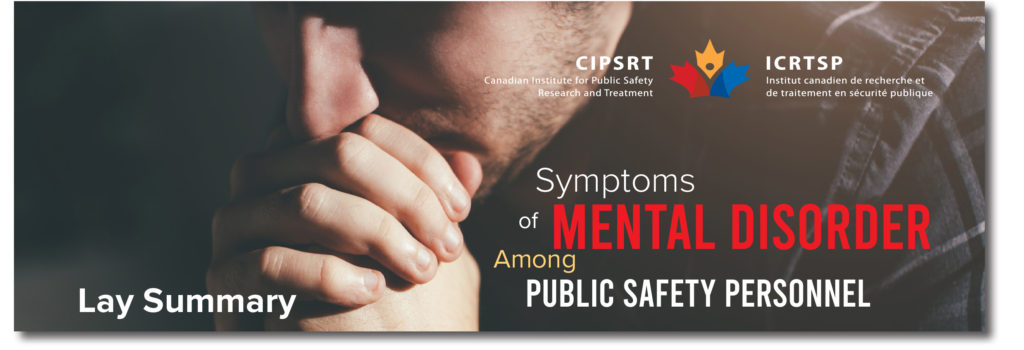Research Summaries

Why was the study done?
Individuals employed in public safety jobs are required to respond to high-stress situations as a regular part of their work. Some of the high-stress situations may occur repeatedly and can be traumatic, potentially leaving long-lasting signs of stress. These types of stressors can have a cumulative effect – that is, stressors slowly increase, and the buildup wears down people’s abilities to cope.
From research with the general public, we know that some people do experience mental health concerns after extreme stress. Public safety personnel (PSP) are more likely to experience frequent, potentially traumatizing situations than the general public. Until recently, however, mental health concerns in Canadian PSP have remained relatively unstudied.
What was done in the study?
A survey was designed with questions about on-the-job trauma experiences, as well as mental health symptoms such as PTSD, depression, anxiety, and potentially harmful alcohol use.
A total of 5,813 Canadians working in public safety jobs completed the questions used for the current report. Participants were asked to answer questions about their mental health symptoms within the past month, allowing for a current snapshot of mental health in Canadian public safety careers.
What did we find?
- Many participants screened positively for symptoms consistent with one or more mental health
- Participants in different professions reported different rates of mental health concerns. (For example, municipal/provincial police officers and firefighters were less likely to screen positive for mental health disorders than people in the other careers.)
- All of the participants seem more likely to screen positive for mental health concerns than we might expect for the general
- Participants who reported being married or common-law had lower levels of mental health concerns.
- Participants appeared more likely to screen positive for mental health concerns the longer they worked in their public safety jobs.
Where do we go from here?
This research provides an important snapshot of how Canadian PSP are currently coping with the high-stress nature of their jobs. Much research to date has focused on the Canadian Forces, and this new survey provides similar information with a large number of PSP in Canada. The current survey results provide an essential roadmap for researchers and public safety organizations. One next step might be face-to-face interviews to get a better and more interactive account of PSP’s experiences. Hopefully, the results of this study will help to reduce stigma and pave the way for efficient, reliable, and targeted mental health services for people in public safety.
The original wording of the study was changed and condensed for this lay summary.
For more information about this research contact CIPSRT@cipsrt-icrtsp.ca
Original Article
Carleton, R. N., Afifi, T. O., Turner, S., Tailieu, T., Duranceau, S., LeBouthillier, D. M., Sareen, J., Ricciardelli, R., MacPhee, R. S., Groll, D., Hozempa, K., Brunet, A., Weekes, J.R., Griffiths, C. T., Abrams, K. J., Jones, N. A., Beshai, S., Cramm, H. A., Dobson, K. S., Hatcher, S., Keane, T. M., Stewart, S. H., & Asmundson, G. J. G. (2018). Mental disorder symptoms among public safety personnel in Canada. Canadian Journal of Psychiatry, 63 (1), 54-64. doi: 10.1177/0706743717723825
Summary Prepared by Horswill, S., Lee, V., MacPhee, R.
Edited by Kossick, E. September 2019